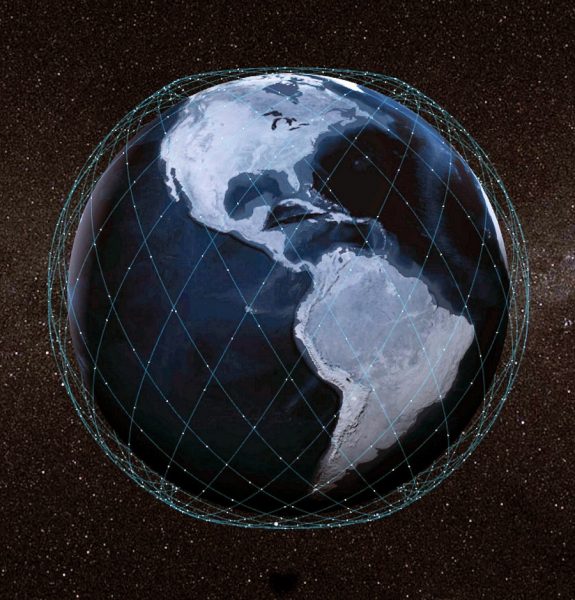SpaceX Proposes Starlink Can Deliver Sat Nav to Complement GPS

SpaceX has proposed that its Starlink service, which offers ultrafast broadband speeds to the UK and beyond via a mega constellation of compact satellites in Low Earth Orbit (LEO), can offer Positioning, Navigation, and Timing (PNT) solutions to complement GPS. This would meet the Federal Communications Commission’s (FCC) desire for an alternative to GPS.
At present Starlink has around 7,500 satellites in Low Earth Orbit (c.3,300 are v2 Mini / GEN 2A) – mostly at altitudes of c.500-600km – and they’ll add thousands more by the end of 2027. Residential customers in the UK typically pay from £75 a month, plus £299 for hardware on the ‘Standard’ unlimited data plan (currently free in some areas on a 12-month term), which promises latency times of 25-60ms, downloads of 25-100Mbps and uploads of 5-10Mbps.
However, it’s long been known that networks like this could potentially also offer an alternative to the Global Positioning System (GPS), which is because they use precise timing and positioning information (telemetry) to ensure their data links can function in a smooth and stable way (example).
Advertisement
Starlink’s first generation (GEN1) satellites weren’t specifically designed to offer this as a service. But the company’s latest Direct to Cell (DtC) capable broadband satellites, which are designed to deliver “robust” global coverage of their new 4G mobile roaming service (currently in the process of a commercial launch), do contain a more sophisticated PNT solution that could deliver a GPS alternative if so desired.
This is important because, as the FCC’s Chair, Brendan Carr, put it earlier this year (X): “Our economy and national security depend on the U.S. GPS system—or, more precisely, the positioning, navigation, & timing (PNT) data it provides. Continuing to rely so heavily on one system leaves us exposed. And the threats to GPS are only going to increase.”
Since then the FCC have been looking for alternatives to complement GPS and SpaceX has now made its own submission (here – credits to PC Mag).
SpaceX Statement on PNT Proposal
As the Commission identifies specific actions to contribute to the whole-of-government PNT system resilience effort, one opportunity stands out as a particularly ripe, low-hanging fruit: facilitating the rapid deployment of next-generation low-Earth orbit (“LEO”) satellite constellations that can deliver PNT as a service alongside high-speed, low-latency broadband and ubiquitous mobile connectivity.
For example, authorizing new U.S.-licensed operators to share chronically underused mid-band mobile-satellite service (“MSS”) spectrum would promote American leadership in the global deployment of direct-to-device mobile services that could also provide GPS-independent PNT solutions.
As several commenters note, a market-driven approach to PNT innovation will achieve a new level of resilience without government subsidies or rules that inadvertently tip the competitive playing field in favor of a particular operator or bespoke solution.
…
SpaceX has invested considerable resources to ensure that its satellite systems can operate independent of GPS. This capability not only allows those systems to operate unhindered even if GPS is unavailable, it also sets the foundation for future solutions that can use any authorized frequency to deliver accurate, reliable, and resilient PNT to any end user device. SpaceX has also been actively working to integrate PNT solutions into its direct-to-device commercial service offerings.
At present we don’t know how accurate Starlink’s PNT solution would be compared to commercial GPS services, but it’ll be interesting to see how this progresses. However, SpaceX is not the only satellite operator attempting to pitch their wagon in this field, with Globalstar (used by Apple’s devices) noting that their satellites also harbour such a capability.
Advertisement
Globalstar’s ability to transmit outside the L-band could potentially also provide PNT users with added immunity from GPS jamming and spoofing, while their transmissions at 2.4GHz are claimed to be stronger than GPS signals (i.e. potentially useful for resilience, performance, and reliability).
By the sounds of it we may see more than one GPS alternative in the future, which is before we even consider the other non-USA based GPS alternatives that already exist (e.g. the EU’s Galileo system). Not to mention that OneWeb (Eutelsat) and Amazon’s Project Kuiper satellites could also be adapted to offer a PNT solution, among others.
Mark is a professional technology writer, IT consultant and computer engineer from Dorset (England), he also founded ISPreview in 1999 and enjoys analysing the latest telecoms and broadband developments. Find me on X (Twitter), Mastodon, Facebook, BlueSky, Threads.net and Linkedin.
« Telefonica SA Reportedly Ponders UK Takeover of Virgin Media O2





















































Since the proposed provider is Starlink, I’m wondering if this would be tied to some kind of subscription.
Just thinking out loud, but if I wanted to have a back-up for my navigation systems, I would first explore if one of my allies already have a system I could use. (Use Galileo.)
Putting something as important as this into the hands of a single commercial entity and one that is beholden to the maniacal whims of Elon would be compete and utter madness. Then again that fits quite well with the present day American political narrative.
Ah the EDS never fails to amuse
“How dare a space company propose an alternative service based on new tech, complete madness!!1 american politics ree”
It will be interesting to see how accurate and reliable it is